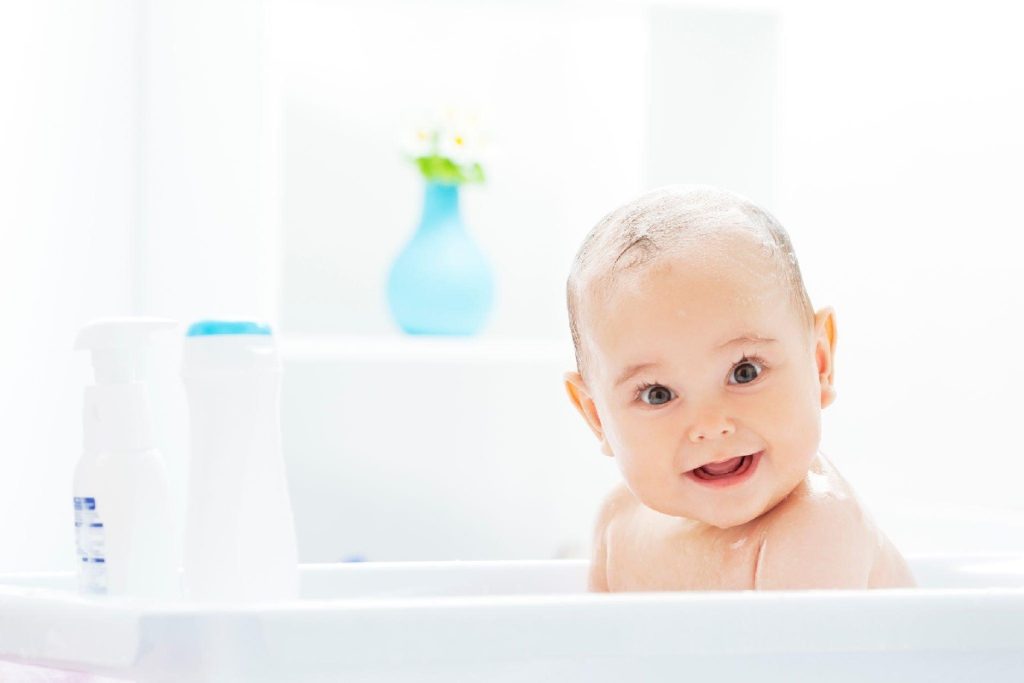
For all kinds of hair and style needs, countless varieties of shampoo are available on the market. Some shampoos are designed to aid with flakiness and dandruff specifically. There are specific shampoos available for fine, limp, straight, and curly hair. Some shampoos can increase elasticity, gloss, or remove frizz. There are shampoos explicitly made for gray and color-treated hair. The sheer number of shampoos on the market is impressive and possibly even baffling. Still, few people know their needs or the advantages of various shampoos for different hair types.
Importance of Baby Shampoo
The sebaceous gland production on a baby’s scalp is regulated by hormone levels and is distinctive. Sebum, a waxy ester secreted by the sebaceous glands, keeps the skin pliable and moisturized while preserving the scalp’s acidic layer. Every 2-3 days, the typical adult develops an overproduction of sebum. The interval could be extended for people with sensitive skin, including youngsters. Sebum gives hair strands a protective layer as well. Babies typically do not require daily washing because their sebaceous glands are still developing.
Advantages Of Baby Shampoo
- Encourages the growth of hair follicles: Baby shampoos produced with plant-based or naturally occurring components, such as seeds and oil, support the development of healthy baby hair.
- The baby shampoo helps to avoid irritability or dryness brought on by dust and changing weather.
- Baby hair shampoo adds shine since it is gentle and easy to lather, leaving baby hair lustrous and squeaky clean.
- Deepest conditioning baby shampoo
- Maintains the health of your baby’s scalp: Baby shampoo contains a pH-balanced solution that is ideal for your baby’s scalp.
What Distinguishes Baby Shampoo From Other Brands?
Lauryl sulfates are commonly used in shampoo to clean and provide lather. Sulfates are excellent detergents, but they might hurt your eyes. Baby shampoos are marketed as “tear-free” because they utilize softer surfactants (amphoteric surfactants) that clean without irritating eyes. Amphoteric surfactants also don’t foam as well as sulfates and are less effective at eliminating product buildup and oil. Babies often don’t have an issue with this, but if you’re an adult using baby shampoo, you might need to lather, rinse, and repeat (primarily if you use many fashioning products).
Is Baby Shampoo Secure?
Yes. All significant manufacturers employ ingredients that have been given the all-clear for use in infant formulas and undergo thorough safety testing. Quaternium-15 and 1,4-dioxane are the two chemicals that have generated significant debate. A preservative that fights germs is called quaternion-15. Preservatives are required in all water-based shampoos to stop bacterial growth, which can be dangerous. A donor of formaldehyde is quaternion-15. Quaternium-15 has not been particularly connected with cancer. However, high amounts of formaldehyde have been associated with cancer development. You should know that formaldehyde donors can be found in various customer goods, including the air we breathe naturally. Baby shampoo has tiny amounts of formaldehyde exposure and deficient levels of Quaternium-15.
To sum up
Being a knowledgeable consumer is fantastic, but sadly, a lot of unreliable information is available. Popular infant shampoos can be used without risk. To avoid any components that give you creeps, just read the ingredient label if you have any doubts.
How to Submit Articles to the Women’s Day blog?
You can email us at contact@womensdayblog.com to get in touch with us.
Why Contribute to the Women’s Day Blog – Baby Shampoo Write for Us?
Related Terms for Baby Shampoo Write For Us
[baby shampoo side effects]
[baby shampoo ingredients]
[baby shampoo price]
[baby shampoo for adults]
[baby shampoo benefits]
[baby shampoo for hair growth]
[baby shampoo and conditioner]
[baby shampoo 100ml price]
[baby shampoo original]
[baby shampoo side effects for adults]
Recommendations of the Article – Baby Shampoo Write For Us
Related Pages:
Cosmetics Technology Write for Us